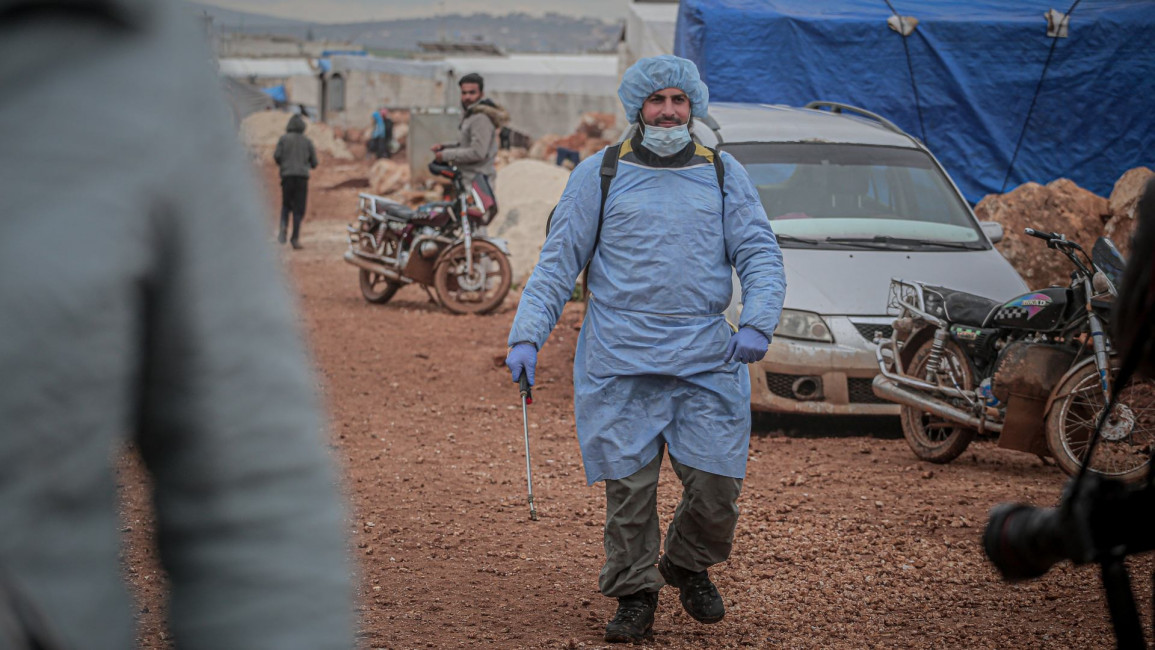Draft UN resolution calls for reopening of aid crossings to Syria amid coronavirus pandemic
A draft United Nations resolution would maintain two border crossing points from Turkey to deliver humanitarian aid to Syria's mainly rebel-held northwest and reopen an Iraqi crossing to the northeast to deliver medical supplies for the Covid-19 pandemic.
Russia, which insisted the Iraqi crossing be shut in January, holds the key to future cross-border operations. It contends cross-border aid was meant to be a temporary response to the nine-year Syrian conflict and the situation on the ground has changed.
The proposed Security Council resolution, drafted by Belgium and Germany and obtained Thursday by The Associated Press, emphasises that 11 million Syrians need aid and that cross-border deliveries remain "an urgent and temporary solution" to help them.
It states that the pandemic presents "a profound challenge to Syria's health system, socioeconomic and humanitarian situations" and "heightens the imperative of using every possible means of reaching people in need".
In January, Russia scored a victory for its close ally Syria, using its veto threat to force the Security Council to adopt a resolution reducing the number of crossing points for aid deliveries from four to just two, from Turkey to the northwest. It also cut in half the year-long mandate that had been in place since cross-border deliveries began in 2014 to six months, as Russia insisted.
|
The newly circulated draft resolution would extend the mandate for the two border crossings from Turkey to the northwest - Bab al-Salam and Bab al-Hawa - for a year. And it would reopen the Al Yarubiyah crossing from Iraq for an initial period of six months until Jan. 10, 2021, and for an additional six-month period if the council decides the impact of the pandemic warrants it after evaluating a report to be done by Secretary-General Antonio Guterres.
Last month, UN humanitarian chief Mark Lowcock called the northwest border operation "a lifeline for millions of civilians whom the UN cannot reach by other means," saying deliveries are at record levels with 1,365 trucks crossing from Turkey in April.
Al Yarubiyah had been used mainly to deliver medical supplies to the northeast and while a first road delivery from Syria made it to the region in May, UN officials say the crossing from Iraq is essential to bring in COVID-19 supplies.
Human Rights Watch's UN Director Louis Charbonneau said its research in late April showed that restrictions on aid from Damasus and Iraq were preventing medical supplies and personnel from reaching two million people in the northeast, where there were dozens of confirmed COVID-19 cases in May and at least three deaths.
"The UN Security Council - including Russia - needs to act quickly to reauthorise medical aid deliveries from Iran to Syria's northeast to prevent further spread of COVID-19 that could devastate the region," Charbonneau said, stressing that alternatives to Al Yarubiyah proposed by Russia and others "have failed to close the gap".
Explainer: Who are the Syrian regime figures on the US’ Caesar blacklist?
Whether Russia will allow the Al Yarubiyah reopening remains to be seen. The current mandate for the two Turkish crossings ends on July 10, and the Security Council hasn't yet engaged in serious discussions on the Belgian-German draft resolution.
Last month, Russia's UN Ambassador Vassily Nebenzia said in response to Lowcock and calls by US Ambassador Kelly Craft for the Iraq crossing to be opened: "Do not waste your time on efforts to reopen the closed cross-border points."
Russia joined the Syrian war in 2015 when the Syrian military appeared close to collapse. Since then, and mainly because of Russia's blanket air support, the Syrian regime has retaken control of most of the country from rebel fighters.
Syria's war has killed more than 380,000 people and displaced millions since it started in 2011 with the brutal repression of anti-government protests.
Follow us on Facebook, Twitter and Instagram to stay connected



